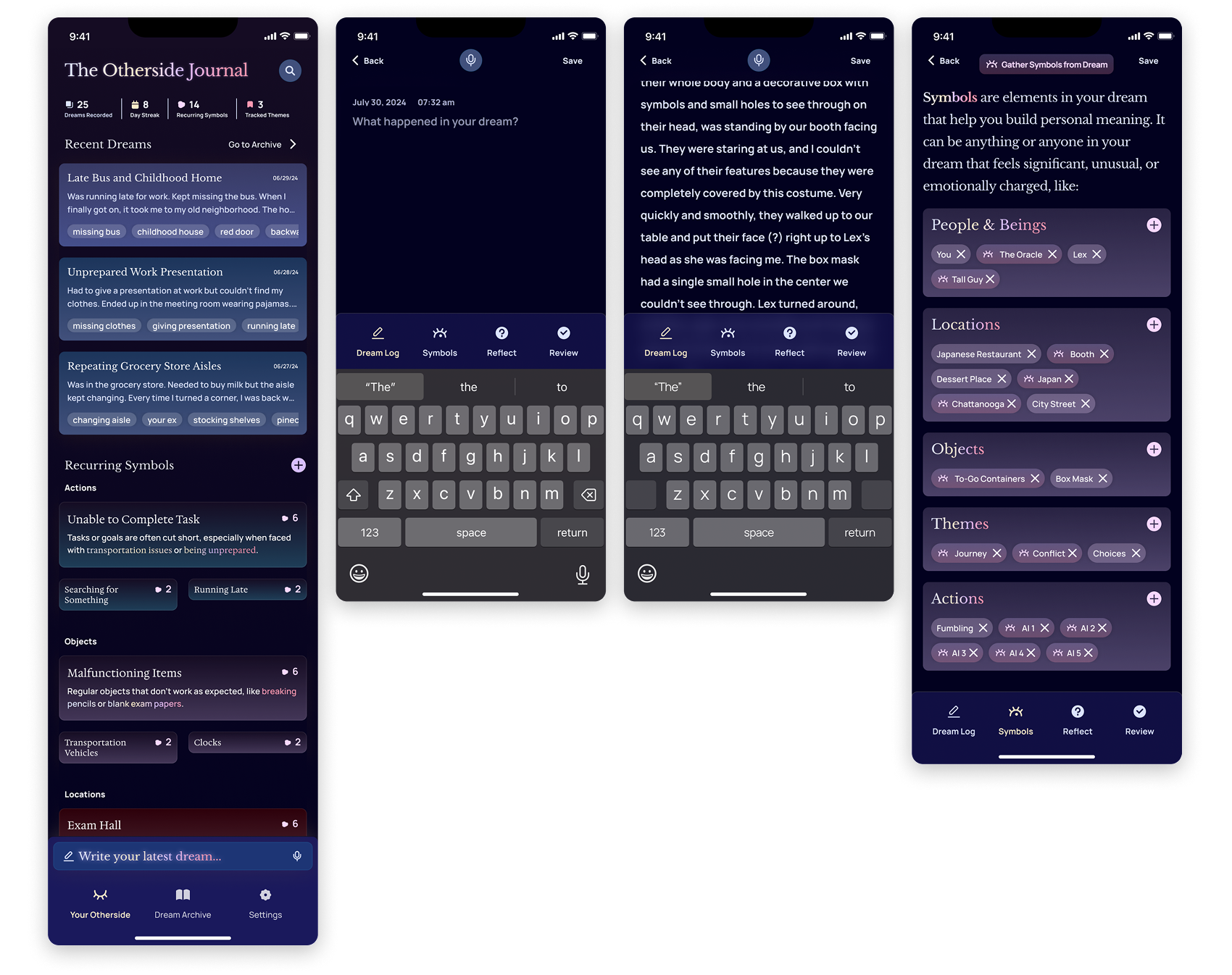
I design to shift perspectives and imagine futures.
Brandon Harwood
is a Designer and Innovation Strategy Advisor
Brandon Harwood works across design, strategy, technology and storytelling to help teams deeply understand people and build profoundly human futures.
Book an Intro CallThe relationship between people and the technology we use is a complex, muddy, weird space to navigate.
I collaborate with individuals and teams to illuminate the path forward by fostering nuanced understand of this relationship, surfacing deep insights, and reflecting on them through design that transforms experiments into lasting solutions and experiences that people love.










Work through ambiguity, opportunity, empathy and technology
Collaboration Canvas
How might we help users form accurate mental models of Generative AI in co-creative contexts to build effective human-AI collaboration?
In collaboration with IBM Research's Human-Centered AI team, I led the design of the Collaboration Canvas, an AI-enabled collaborative whiteboarding application aimed at enhancing creative processes through human-AI co-creation.
Prompt Engineering,
UX Design,
UI Design,
Prototyping,
Development
The Otherside Journal
The Otherside Journal is an application to record dreams and the symbols that appear. After writing a dream, the application highlights and summarizes appearances of objects, beings, environments, and more to provide a space where users can reflect on and deeply connect with their dream state through guided prompting. Key principles of the app include:
User Autonomy:
All interpretations come from the user
Non-Authoritative AI:
Assistance focused on pattern recognition, not meaning interpretation
Simplicity:
Intuitive interface with progressive disclosure of advanced features
Privacy:
Strict data protection and transparent privacy policies
Research,
Design,
Prototyping (ongoing),
Development (ongoing)





Sugar Creek Brewery IoT & Analytics
I led design efforts with the folks at Sugar Creek Brewery to automate their brewing process through state of the art AI instrumentation, Watson IoT, and Analytics.
This project was done in collaboration with Bosch to showcase both IoT hardware capabilities and human-centric computer vision solutions, while improving processes and work life for the staff of the small, locally owned brewery in Charlotte, North Carolina.
UX Design,
Data Visualization,
UI Design,
Prototyping


Video Game Vibe Thinking Workshop
I created a custom Game Design workshop method with two main activities: 'Influences to Ideas' and 'Personality Mapping,' both of which help explore and define the game's themes and main character.
Creative Direction,
Game Design Documentation



Writings on AI & Creativity

Collected consciousness: AI product design for empowering human creativity | Medium

A framework for designing AI interactions that work for creative people, and a culmination of lessons I’ve learned questioning and building off existing research surrounding how creativity works, how people “do” creativity, what tools actually help us through creative work, and what tools don’t.
AI as an Interface for Creativity | Medium

AI is typically seen as a Producer, generating creative artifacts. How does the dynamic change when it can pull creative ideas from us, or push new perspectives that challenge our creative workflows?
CHAI-DT: A Framework for Prompting Conversational Generative AI Agents to
Actively Participate in Co-Creation | Arxiv

Research paper presented at CHI 2023 Generative AI and HCI workshop, introducing a convenient, efficient framework for prompting Conversational Generative AI Agents to contribute useful creative artifacts to Design Thinking groups.
See more on Medium

More writings on Design, Strategy, AI, and other weird stuff, as well as older topics like why hackathons need designers, case studies and more.
Experiments and other potential things
This section is dedicated to scrappy little exploratory AI things, fun side projects, and sorta-working prototypes.

Design Thinking Assistants

In ideation, Large language models can provide an artificial, observational perspective that can uncover insights both obvious and unexpected. Originally built for the UXSTRAT conference, this is a small collection of sticky note generators, intended to help workshoppers explore and reflect on topics.
Design my UI!

When we think about designing with AI, we're often limited to single prompt inputs. What if, instead of trusting the AI to fully interpret our intentions within such a limited scope, a chatbot could design it's own interface through a conversation you can express your creative direction?
GPT: Hep!

Hep! is a GPT that asks questions and facilitates ideation to help you think more deeply about whatever is is you want to make or do, offering insights and producing visual or written content to stimulate your process if you need it.
GPT: Pulpo

Pulpo is another GPT that started out as a version of Hep! but ended up distinguishing itself a bit. Pulpo writes notes about whatever idea or project you're working through conversationally, and pushes you to explore different paths, tracking your thoughts and providing structure. It extends ideas in different directions, like tentacles!







